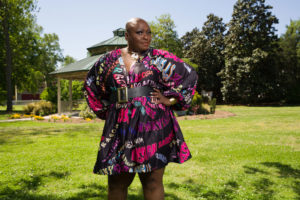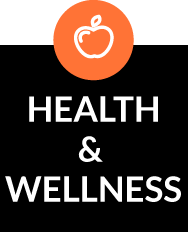Today, I want to talk about a subject that is very personal to me, and has made me view things from a different perspective. I have often spoken about my mother being diagnosed with ovarian cancer and how they found it in the fourth stage.
I remember being angry and confused because when I got the news the first thing I thought was, “She was going to all her appointments!” My mother had other health challenges, but had a very thorough and involved general practitioner who always made sure she stayed on top of her health care, not just with her but with any other specialists she needed to see.
But yet … cancer? Stage 4? How?
What some women don’t realize is that regular pap smears detect only cervical cancer. They do not usually detect ovarian or other cancers.
According to the Centers for Disease Control, “Ovarian cancer is the second most common gynecologic cancer in the United States. Ovarian cancer causes more deaths than any other cancer of the female reproductive system.”
Ovarian Cancer Symptoms
The thing that makes this terrible cancer such a horrible disease is that the symptoms are very subtle, so subtle they can be mistaken as just gas, or simple digestion issues. Some of the symptoms include: feeling full, bloating, vaginal bleeding, back pain, fatigue, abdominal swelling, sudden weight loss, bowel changes, constipation, changes in menstrual cycle or upset stomach. None of that sounds like cancer, does it? And it’s very difficult to diagnose.
The lack of a good screening tool means all too often, women get diagnosed in the final stage. It is an aggressive cancer that can spread very quickly if not treated right away. There’s a reason why it’s called the “silent disease.”
So, now that we know a routine exam will not properly screen you, what steps can you take? First of all ladies, be your own advocate. If something is wrong with your body, it is up to you to go to your doctor, and state your concerns clearly. You know your body!
If you feel something is going on, and especially if you’re at high risk for ovarian cancer, you can request a full pelvic exam, along with a transvaginal ultrasound and a CA-125 blood test. According to the American Cancer Society, some organizations suggest these tests to screen women considered at high risk. However, the site also states: “Still, even in these women, it has not been proven that using these tests for screening lowers their chances of dying from ovarian cancer.”
When it Comes to Ovarian Cancer, Everyone is Different
Curvy friends, keep in mind that each woman is different, and each case will be different, so again, talking to your doctor is the best course of action to take. Have your doctor explain everything so that you understand, and also do your own research, and bring back your findings to your doctor. Working together is the best possible course of action, and will bring everyone on the same page. Also, check your insurance plan, because sometimes this particular test is not covered. However, if you feel you need it, you can try appealing your insurance company’s decision.
Since my mother’s passing, I have been very proactive about my screenings because I have a family history of gynecological cancers. So along with thorough exams, I have also participated in genetics testing. I have to admit that was very scary for me, because it took a month for the results to come back! Genetics testing can help you know if you are predisposed to cancer, or have certain markers. Again, early detection is the main focus, and by doing what you can you may increase your chances of survival if you find something wrong.
What is my reason behind sharing this? Saving as many lives as possible. Our theme at the National Ovarian Cancer Coalition (Illinois Chapter) is, “Together we are strong, and will never back down.”
Remember, if cancer affects one of us it affects us all. Let’s fight this thing!
Peace,
Kandis Draw
Kandis Draw – 2020 Ovarian Cancer Research Alliance Advocacy Leader for Illinois
Gilda’s Club Chicago Associate Board Member
Featured in: Cancer Wellness Magazine, Ignite Hope Candle Blog, The Honorable Tina Bronzeman Blog, Splash Magazine, NOCC National, and (soon) We Have Cancer Podcast.
About the Author: Kandis Draw is on the advisory board of Curvicality. She is a cancer support advocate, classical pianist, and lover of all things sparkly.
































